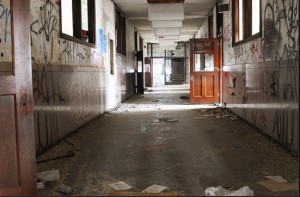Dear Commons Community,
Michael Bérubé, professor of literature at Pennsylvania State University and a past president of the Modern Language Association, turns upside down the popular notion that the humanities are in decline, but in fact, are holding their own especially among undergraduates. In an article for The Chronicle of Higher Education, he comments:
“… there was a decline in bachelor’s degrees in English, just as there was a drop-off in humanities enrollments more generally. But it happened almost entirely between 1970 and 1980. It is old news. Students are not “now making the jump” to other fields, and it is not “getting worse.” It is not a “recent shift.” There is no “steady downward spiral.” It is more like the sales of Beatles records—huge in the 60s, then dropping off sharply in the 70s.
And why does that matter? Because many of the accounts of the decline of the humanities are tendentious…
…from the late 1940s to early 1970s, English majors climbed from 17,000 to 64,000, “but by 1985-86,” he concludes, “the number of undergraduate English majors had fallen back to 34,000, despite a hefty increase in total nationwide undergraduate enrollment.” Quite true. But by 2003-4, … that number was almost 54,000. Why was no one writing about how the number of English majors had grown by 20,000 over 20 years—almost a 60-percent increase.”
Bérubé also references Nate Silver to verify his analysis:
“Nate Silver, the statistician who has become famous for the accuracy of his analyses of polling data, has weighed in on the inexorable decline of the humanities, and has found, using “numbers” and “arithmetic,” that “the relative decline of majors like English is modest when accounting for the increased propensity of Americans to go to college.”
“In fact, the number of new degrees in English is fairly similar to what it has been for most of the last 20 years as a share of the college-age population,” Silver said. “In 2011, 1.1 out of every 100 21-year-olds graduated with a bachelor’s degree in English, down only incrementally from 1.2 in 2001 and 1.3 in 1991. And the percentage of English majors as a share of the population is actually higher than it was in 1981, when only 0.7 out of every 100 21-year-olds received a degree in English.”
Bérubé concludes:
“There is indeed a crisis in the humanities. I have said as much in this very space: It is a crisis in graduate education, in prestige, in funds, and most broadly, in legitimation. But it is not a crisis of undergraduate enrollment. And one of the reasons for the crisis of legitimation, surely, is the constant parade of people, especially among humanists themselves, who continue to talk about enrollment declines in ways that are factually, stubbornly, determinedly wrong.”
Bérubé’s position is well taken especially as we hear calls from public and private funding agencies for colleges to shift funding from the humanities to STEM and other “employable” majors.
Tony




